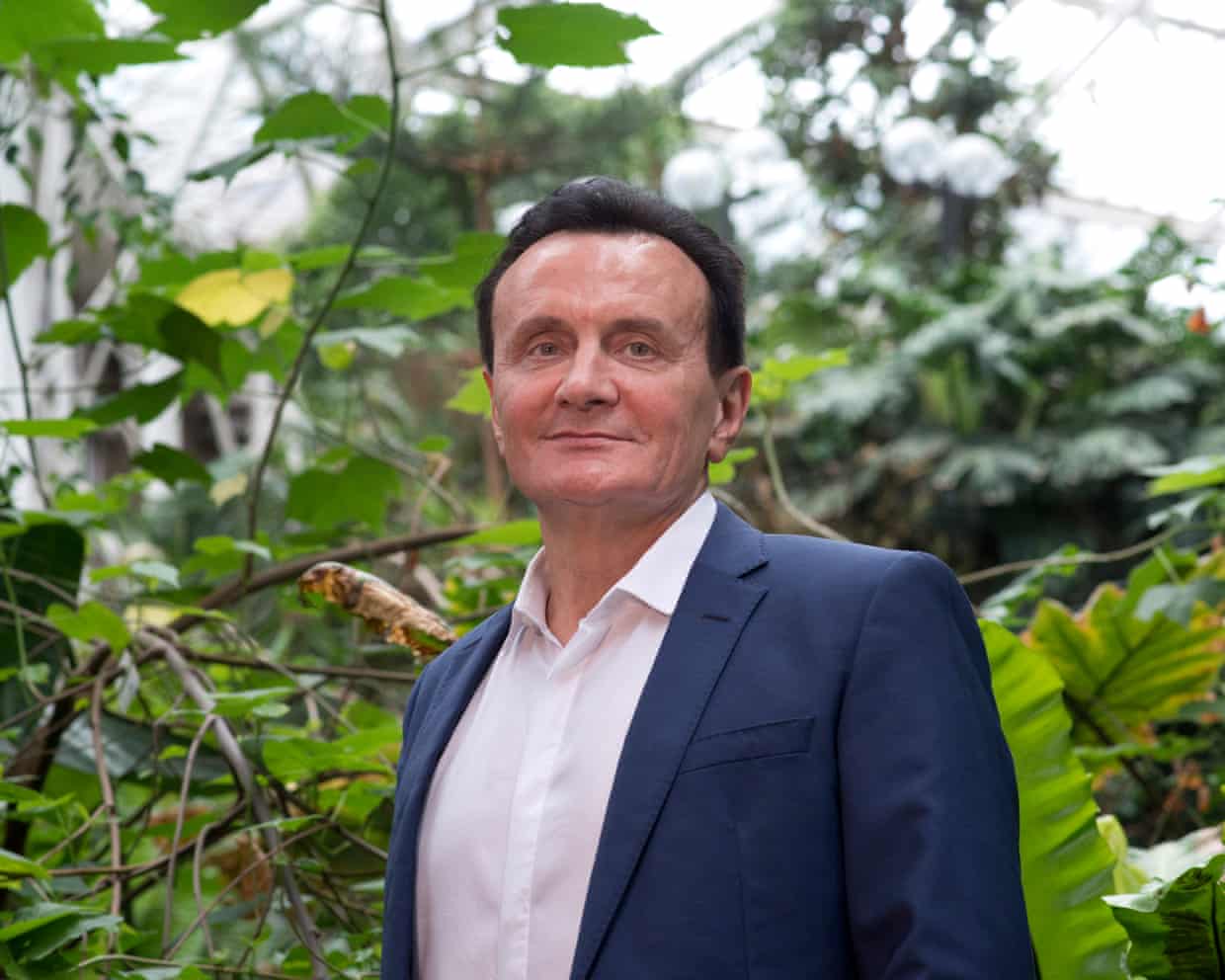AI helps find formula for paint to keep buildings cooler

AI-engineered paint could reduce the sweltering urban heat island effect in cities and cut air-conditioning bills, scientists have claimed, as machine learning accelerates the creation of new materials for everything from electric motors to carbon capture.Materials experts have used artificial intelligence to formulate new coatings that can keep buildings between 5C and 20C cooler than normal paint after exposure to midday sun.They could also be applied to cars, trains, electrical equipment and other objects that will require more cooling in a world that is heating up.Using machine learning, researchers at universities in the US, China, Singapore and Sweden designed new paint formulas tuned to best reflect the sun’s rays and emit heat, according to a peer-reviewed study published in the science journal Nature.It is the latest example of AI being used to leapfrog traditional trial-and-error approaches to scientific advances.
Last year the British company MatNex used AI to create a new kind of permanent magnet used in electric vehicle motors to avoid the use of rare earth metals, whose mining is carbon-intensive.Microsoft has released AI tools to help researchers rapidly design new inorganic materials – often crystalline structures used in solar panels and medical implants.And there are hopes for new materials to better capture carbon in the atmosphere and to make more efficient batteries.The paint research was carried out by academics at the University of Texas in Austin, Shanghai Jiao Tong University, the National University of Singapore and Umeå University in Sweden.It found that applying one of several new AI-enabled paints to the roof of a four-storey apartment block could save electricity equivalent to 15,800 kilowatt hours a year in a hot climate such as Rio de Janeiro’s or Bangkok’s.
If the paint were applied to 1,000 blocks, that could save enough electricity to power more than 10,000 air conditioning units for a year.Yuebing Zheng, a professor at the University of Texas and co-leader of the study, said: “Our machine learning framework represents a significant leap forward in the design of thermal meta-emitters.By automating the process and expanding the design space, we can create materials with superior performance that were previously unimaginable.”He said a month’s work designing a new material was being done in a few days using AI and that new materials that may never have been discovered through trial and error were being created.“Now, we follow the machine learning output, [its instructions for] the structure and what kind of materials we should use, and we can get it right without going through many, many design and fabrication testing cycles.
”Dr Alex Ganose, a chemistry lecturer at Imperial College London who also uses machine learning to design new materials, said: “Things are moving very fast in this space.In the last year or so there have been so many startups trying to use generative AI for materials.”He said the process of designing a new material could require the calculation of millions of potential combinations.AI allows material scientists to push through previous restrictions in computational power.It also means the traditional process of creating a material and then testing its properties can be reversed, with scientists able to tell the AI what properties they want upfront.

‘I was constantly scared of what she was going to do’: the troubled life and shocking death of Immy Nunn
Two years after Immy killed herself, her mother Louise is still trying to understand how she found her way to a pro-suicide forum – and a man accused of supplying more than 1,000 packages of poisonJust a few hours before she ended her life, Immy Nunn seemed happy. She and her mother, Louise, had been shopping and had lunch. It was the final day of 2022 and Immy, who was 25, appeared positive about the new year. She talked about taking her driving test and looking for a new flat. She was excited about the opportunities her profile on TikTok was bringing her; known as Deaf Immy, she had nearly 800,000 followers, attracted by her honest and often funny videos about her deafness and her mental health

Cass review: how has report affected care for transgender young people?
At the heart of the controversy about how to meet the needs of young people questioning their gender has been the huge rise in referrals to the Tavistock – previously the only dedicated clinic in England and Wales treating children with gender dysphoria.The clinic was closed one month before the Cass review into youth gender identity services, commissioned by NHS England and led by the British paediatrician Hilary Cass, which found that children had been “let down” by the NHS amid a “toxic” public discourse.Her report recommended a significant shift in treatment away from medical intervention towards a more holistic approach to care, including therapy and treatment for coexisting mental ill health, neurodivergence or family issues, and to be provided by a network of regional hubs rather than concentrated in one location.Fourteen months later and the exponential rise in referrals for NHS care has halted, with figures showing a sharp reduction from up to 280 referrals a month at the Tavistock to between 20 and 30 a month this year, a 10th of the earlier rate.James Palmer, the medical director for specialised services at NHS England, who is responsible for implementing the recommendations of Cass, suggests a number of factors are behind the decrease

Children should not be strip-searched or detained unless a last resort, say MPs
Children should not be detained in custody unless arrested for a serious crime and strip-searched only under truly exceptional circumstances, two parliamentary reports have said.Harrowing testimonies of children in England and Wales who were strip-searched and who accused police of racism and making damaging, disrespectful comments are included in the research for the all-party parliamentary group (APPG) on children in police custody.The reports – the culmination of a year’s research involving children, police forces and parents – were released days after the sacking of two Metropolitan police officers who were involved in the strip-search of a schoolgirl who become known as Child Q.While a police misconduct hearing found that racism was not a factor in that incident, the research gives voice to young people who said that racism was a factor in their strip-searches.Children as young as 10 in England and Wales are currently subject to the same processes and have essentially the same protections as adults when they are detained in police custody

NHS in England told to slash recruitment of overseas-trained medics
Hospitals and GP practices in England will be told to slash the number of overseas-trained doctors and nurses they recruit under government plans for the NHS that will be published on Thursday.Graduates of UK medical schools will be given priority as part of a drive to reduce the health service’s dependence on medics from abroad.NHS care providers will be told to cut the number of doctors they hire from overseas from 34% to under 10% to give homegrown medics a better chance of progressing their careers.A large and growing number of UK-trained medical graduates have found themselves “in career limbo” after failing to secure a specialty training post – the first step on the ladder to becoming a consultant or GP.The British Medical Association has said that about 20,000 doctors applying for training positions in the NHS across the UK this year will be denied one in their chosen specialism because there are too few available

UK’s obesity and overweight epidemic costs £126bn a year, study suggests
The cost of the UK’s epidemic of overweight and obesity has soared to £126bn a year, far higher than previous estimates, according to a study.The bill includes the costs of NHS care (£12.6bn), the years people spend in poor health because of their weight (£71.4bn) and the damage to the economy (£31bn).The calculations, by Frontier Economics for the Nesta thinktank, have prompted calls from food campaigners for ministers to take more robust action to tackle obesity, for example by extending the sugar tax from fizzy drinks to a wider range of sweet foods and beverages

Women over 65 still at risk from cancer from HPV and should be offered cervical screening – study
Routine cervical screening should be offered to women aged 65 and over as they are still at heightened risk of cancer from human papillomavirus (HPV), according to research.Despite it being a preventable disease, there were about 660,000 cases of cervical cancer and 350,000 deaths from it worldwide in 2022, according to the World Health Organization (WHO).HPV is responsible for about 95% of cervical cancer, which occurs when abnormal cells develop in the lining of the cervix and grow, eventually forming a tumour.WHO’s global strategy on cervical cancer states that by 2030, all countries should vaccinate 90% of girls with the HPV vaccine by 15, screen 70% of women and treat 90% of those with cervical disease. Modelling suggests this would prevent 62m deaths and a cumulative 74m new cases of cervical cancer by 2120

UK financial watchdog expands bullying rules to 37,000 City firms

If AstraZeneca goes to the US, it will be a major blow for London and Labour

Santander takeover of TSB is boost to Reeves as she fights to keep City’s trust

UK bond yields rise sharply amid speculation over future of Rachel Reeves

Heathrow fire caused by preventable fault, report finds, as Ofgem launches investigation into incident – as it happened

Tell us: what would you like to see on a redesigned bank note?